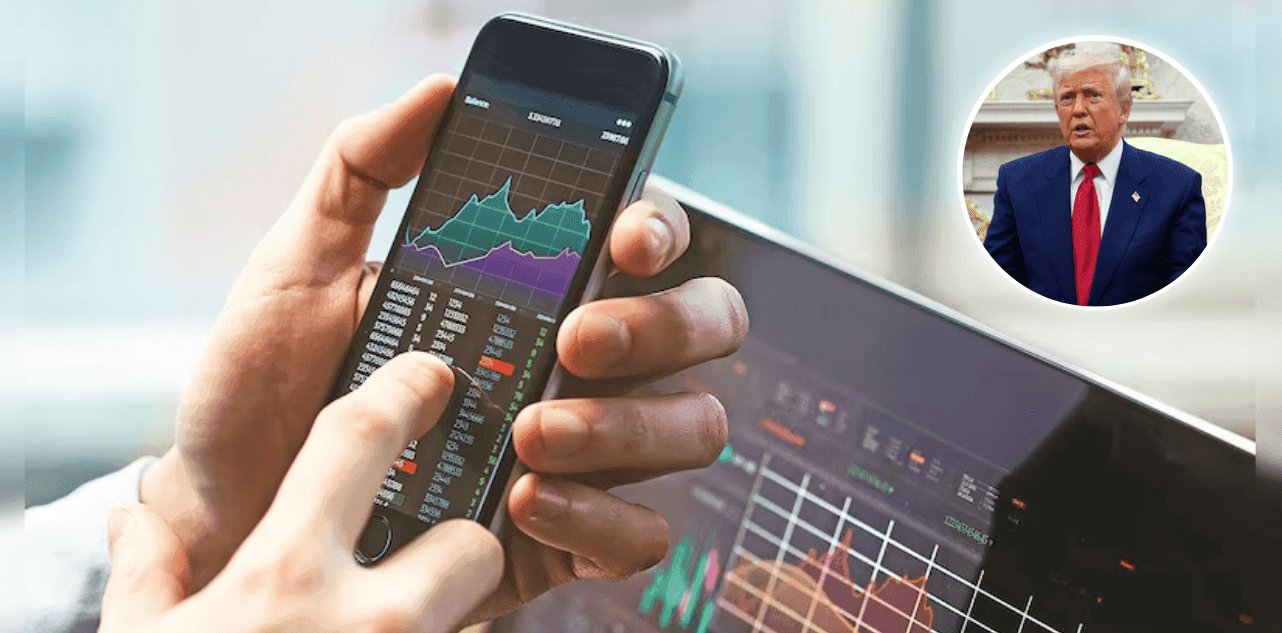Sunday 13 April 2025
Indian Stock Markets Rebound After Trump Tariff-Induced Plunge
Share

The Indian stock markets experienced a significant rebound on April 8, 2025, following a steep decline triggered by the announcement of new U.S. tariffs by President Donald Trump. The previous session's sharp downturn had raised concerns among investors, but the markets showed resilience, buoyed by bargain hunting and positive cues from other Asian markets.
At the opening bell on April 8, the benchmark BSE Sensex surged by 1,141.14 points, or 1.56%, reaching 74,279.04. Simultaneously, the broader NSE Nifty climbed 401.10 points, or 1.81%, to 22,562.70. This recovery came after both indices faced their most significant single-day drops in ten months during the previous session.
Among the 30 Sensex stocks, Tata Steel led the recovery with a 4.98% increase, trading at ₹136.05. Titan and Tata Motors also saw substantial gains, rising by 4.71% and 3.48%, trading at ₹3,166.05 and ₹600, respectively. The only laggard was Sun Pharmaceutical Industries, which dipped slightly by 0.34%, trading at ₹1,662.75.
Sectoral indices reflected broad-based gains, with the Nifty Consumer Durables Index rising by 3.25% to 35,112.40, the Nifty Metal Index up by 2.99% to 8,080.90, and the Nifty Realty Index increasing by 2.42% to 795.
The rebound followed a tumultuous session on April 7, where the Sensex plummeted by 2,226.79 points (2.95%) to close at 73,137.90, and the Nifty fell by 742.85 points (3.24%) to 22,161.60. This downturn was primarily driven by investor anxiety over the US administration's announcement of new tariffs, which sparked fears of a global recession.
During that session, metal stocks bore the brunt of the sell-off, with Tata Steel declining by 7.73% to ₹129.60, Larsen & Toubro dropping by 5.78% to ₹3,070.85, and Tata Motors decreasing by 5.54% to ₹579.85. The Nifty Metal Index fell by 6.75% to 7,846.35, reflecting the sector's vulnerability to trade tensions.
The market volatility was set against the backdrop of escalating trade tensions initiated by U.S. President Donald Trump's imposition of new tariffs. These tariffs led to retaliatory measures from affected countries, including China, which announced its own set of levies. The tit-for-tat actions heightened fears of a global trade war, impacting investor sentiment worldwide.
However, hopes for negotiations emerged as President Trump indicated potential talks with Japan regarding the tariffs. This development contributed to a positive shift in investor sentiment, leading to rebounds in various Asian markets, including India's.
Financial analysts observed that the tariffs imposed on India were comparatively lower than those on other Asian nations, such as China and Vietnam. This relative advantage, coupled with India's diversified export portfolio, suggested that the Indian economy might weather the tariff storm more effectively. Analysts from JP Morgan Private Bank and Morgan Stanley noted that India's exports to the U.S. constitute only about 2% of its GDP, implying a limited direct impact on economic growth.
Additionally, the Reserve Bank of India's accommodative monetary policy, including recent rate cuts and liquidity infusions, provided a supportive environment for economic recovery and market resilience. These domestic factors played a crucial role in cushioning the Indian markets against external shocks.
The Indian stock markets' rebound on April 8, 2025, demonstrating resilience in the face of global trade tensions and tariff shocks. While the previous session's decline highlighted the markets' sensitivity to international developments, the swift recovery underscored the strength of domestic economic fundamentals and investor confidence. As the global trade landscape continues to evolve, market participants will closely monitor diplomatic engagements and policy responses to navigate the complexities of international trade relations.
Newsletter
Stay up to date with all the latest News that affects you in politics, finance and more.